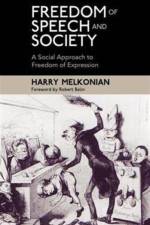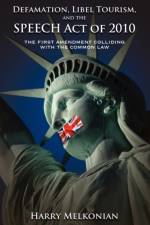von Harry Melkonian
118,00 €
Traditionally, freedom of speech has been justified as necessary for democratic government and as an essential individual right. This study departs from traditional legal and philosophical theories and breaks new ground by demonstrating that well-established and contemporary social theory explains the essential role of speech in highly differentiated modern societies. Utilizing some of Emile Durkheim s well-established classical concepts relating to the division of labor in society, the book builds on the consequences of division of labor such as increased individuation and diminution of shared beliefs to demonstrate that as division of labor increases, so does the social requirement of increased freedom of expression. As shared beliefs diminish, economic, social and political decisions cannot be made by a society without increased freedom of expression. As Durkheim focused on division of labor, contemporary sociologist Jurgen Habermas builds on this and specifically recognizes the need for consensus building among individuals in modern highly differentiated societies. Consensus, in turn, is built through freedom of expression listening as well as speaking. By combining the work of Durkheim and Habermas, a comprehensive blueprint and theoretical model for freedom of speech is established independent of existing legal or philosophical theory. Having developed a sociological basis for freedom of expression, Freedom of Speech and Society proceeds to justify use of the theory by presenting empirical evidence that supports the continued relevance of Durkheim s classical theories. Durkheim predicted that as division of labor increased, there would be a trend toward civil as compared to criminal remedies for the same type of offensive conduct. He based this conclusion on the fact that criminal law reflected violation of community values while private remedies were more directed toward conduct that injured the individual as opposed to society as a whole. As division of labor increased, commonly held beliefs would, in turn, diminish and public crimes would more likely be treated as private offenses. Again, breaking new ground, this study demonstrates the validity of this theory in the context of speech law through application of empirical evidence showing the decrease of criminal defamation and growth of private defamation remedies. This chronology tracks the evolution of modern societies and the ever-increasing division of labor. Freedom of expression in the age of the internet communication without borders is a frequent subject of debate both on a political and legal level. However, the theoretical underpinnings have generally been confined to legal and philosophical analysis. These existing theories are not entirely satisfying because they cannot explain freedom of speech beyond the individual. Freedom of Speech and Society presents arguments that freedom of expression in the twenty-first century can be approached as a social phenomenon through the application of sociological theory. Existing approaches are either confined to political communication or focus on individual wellbeing. In this book, sociological arguments for freedom of expression are derived from both Emile Durkheim s classical social theory and the contemporary theories of Jurgen Habermas. Application of these theories demonstrates that freedom of speech is essential from a societal point of view. This book is the first attempt to bring sociological theory into the free speech debate. Almost always viewed as an individual right, this study, using classical sociological theory, argues that freedom of expression is essential as a group right and that without an expansive freedom of expression, modern society simply cannot efficiently operate. Viewed through the lens of sociological theory, freedom of expression is seen to be not only desirable as an individual privilege but also essential as a societal right. To validate the use of classical sociological theory, the author demonstrates that empirical evidence concerning the demise of criminal libel is predicted by Durkheim s theory and that recent archeological evidence supports the continuing vitality of classical sociology. To bring sociological theory into the 21st Century, the contributions of contemporary German sociologist Jurgen Habermas are also employed. This modern theory also validates the classical theory. Once viewed through the lens of social theory, freedom of expression as justified by traditional legal and philosophical is explored and then the two approaches are compared. While sociology and philosophy are not at odds, they are not perfectly congruent because one focuses on societal needs while the other is based on the individual. When combined, a more comprehensive perspective can be constructed and, perhaps, a more accurate need for freedom of expression is established. Freedom of Speech and Society is an important and ground-breaking book for political, media, and legal studies.


